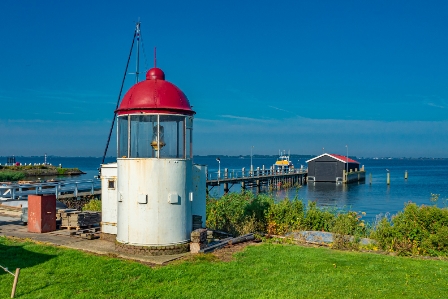The Artistic Sanctuary in Beverly Hills
Keith Haring, the legendary pop artist known for his vibrant, graffiti-inspired works, left an indelible mark not just on canvas but also in architecture with his Beverly Hills home. Purchased in 1988, this property became more than just a residence—it was a living canvas that embodied Haring’s artistic vision and philosophy.
The home, located in one of Beverly Hills’ most prestigious neighborhoods, served as both a private retreat and a creative hub where Haring would entertain fellow artists, musicians, and cultural icons of the 1980s. Its design reflected Haring’s belief that art should be accessible to all, transforming the traditional concept of luxury living into an immersive artistic experience.



Architectural Significance
What set Keith Haring’s Beverly Hills home apart was its complete integration of art and living space. Unlike traditional homes where art is displayed on walls, Haring’s residence featured his iconic designs as intrinsic architectural elements:
- Custom-designed tiles throughout the home featuring his signature “radiant baby” and barking dog motifs
- Murals that flowed seamlessly from room to room, creating a cohesive visual narrative
- Furniture and fixtures designed by Haring himself, blurring the line between functional objects and art pieces
- A pool area transformed into a large-scale art installation with vibrant colors and patterns
This approach challenged conventional notions of residential design, making the home itself a significant work of art that predated today’s trend of immersive art experiences by decades.
Historical Timeline
Purchase of the Property
Keith Haring acquires the Beverly Hills home at the height of his career, seeing it as both a personal retreat and a new canvas for his artistic expression.
Transformation Period
Haring collaborates with architects and designers to completely reimagine the space, incorporating his signature style into every aspect of the home’s design.
Final Months
Despite his declining health, Haring continues to add personal touches to the home, creating some of his most intimate works within its walls.
Preservation Efforts
Following Haring’s death, the home becomes a carefully preserved testament to his legacy, with subsequent owners maintaining its artistic integrity.
The Home’s Legacy in Contemporary Art
Keith Haring’s Beverly Hills residence stands as an important milestone in the evolution of art-integrated architecture. Its influence can be seen in:
Artist-Designed Homes
The home pioneered the concept of artists creating complete living environments, inspiring subsequent generations to view residential spaces as holistic artworks.
Immersive Art Experiences
Before immersive art installations became mainstream, Haring’s home offered a fully realized environment where visitors were surrounded by art in every direction.
Street Art in Architecture
The home demonstrated how street art aesthetics could be successfully integrated into high-end residential design, bridging cultural divides.
Voices on Haring’s Home
What art historians and contemporaries say about this unique artistic residence
“Haring’s Beverly Hills home was more than a residence—it was a manifesto. It challenged the art world’s boundaries between public and private, functional and aesthetic.”
“Visiting Keith’s home was like stepping into one of his paintings. Every surface told a story, every corner held a surprise. It was art you could live in.”
“The home represents a crucial moment when street art gained architectural legitimacy. Haring proved that his visual language could shape spaces, not just adorn them.”





